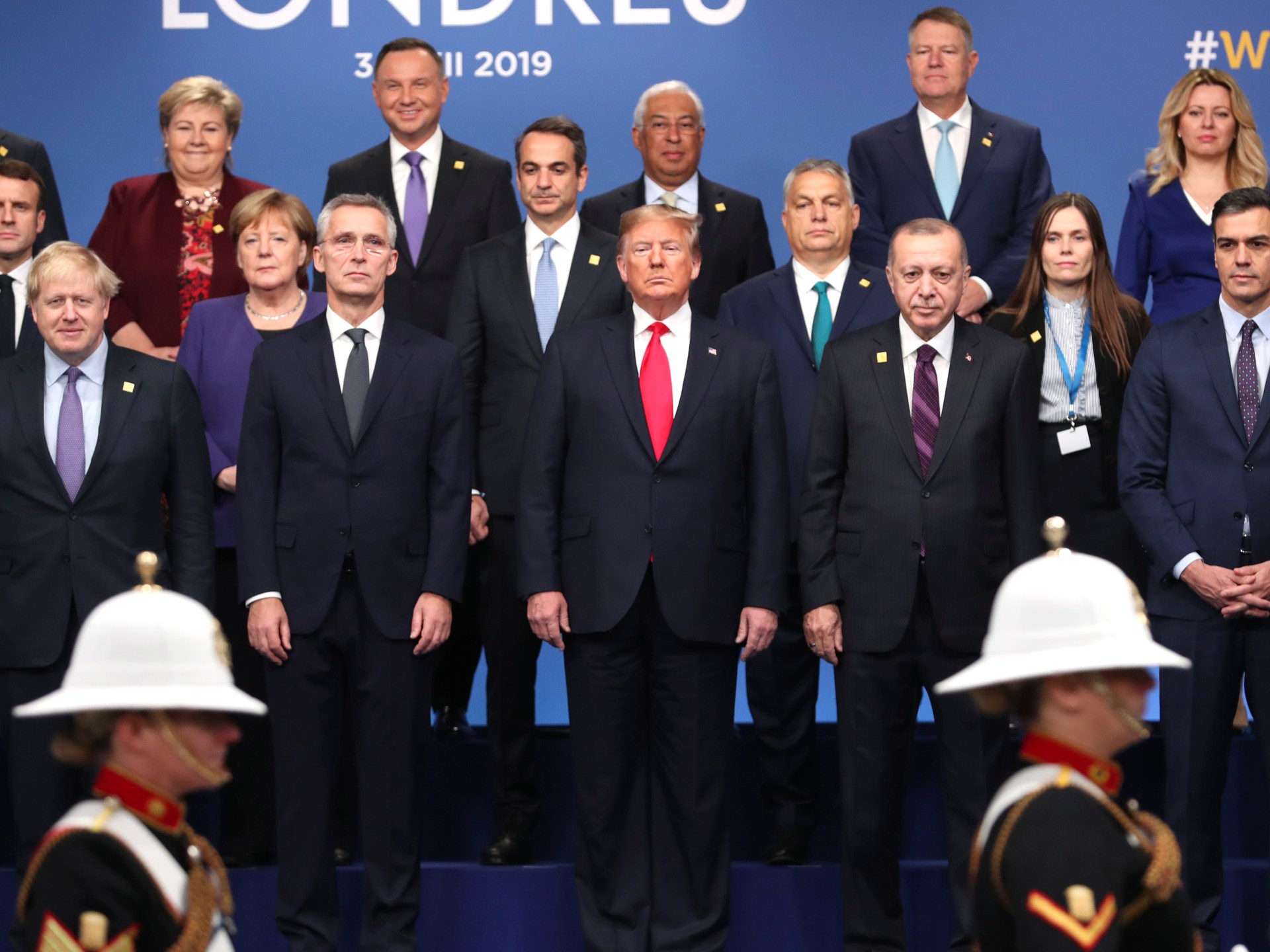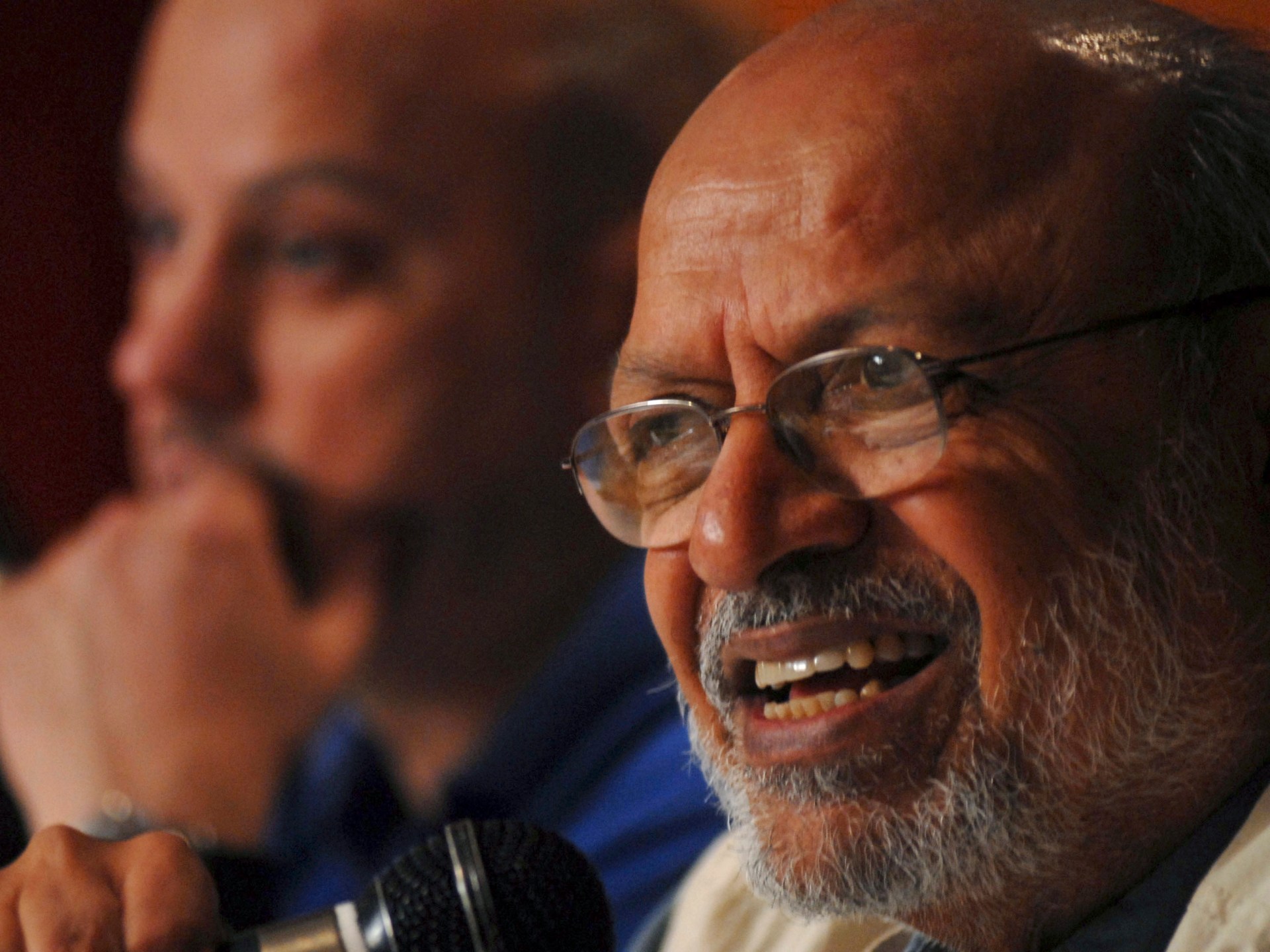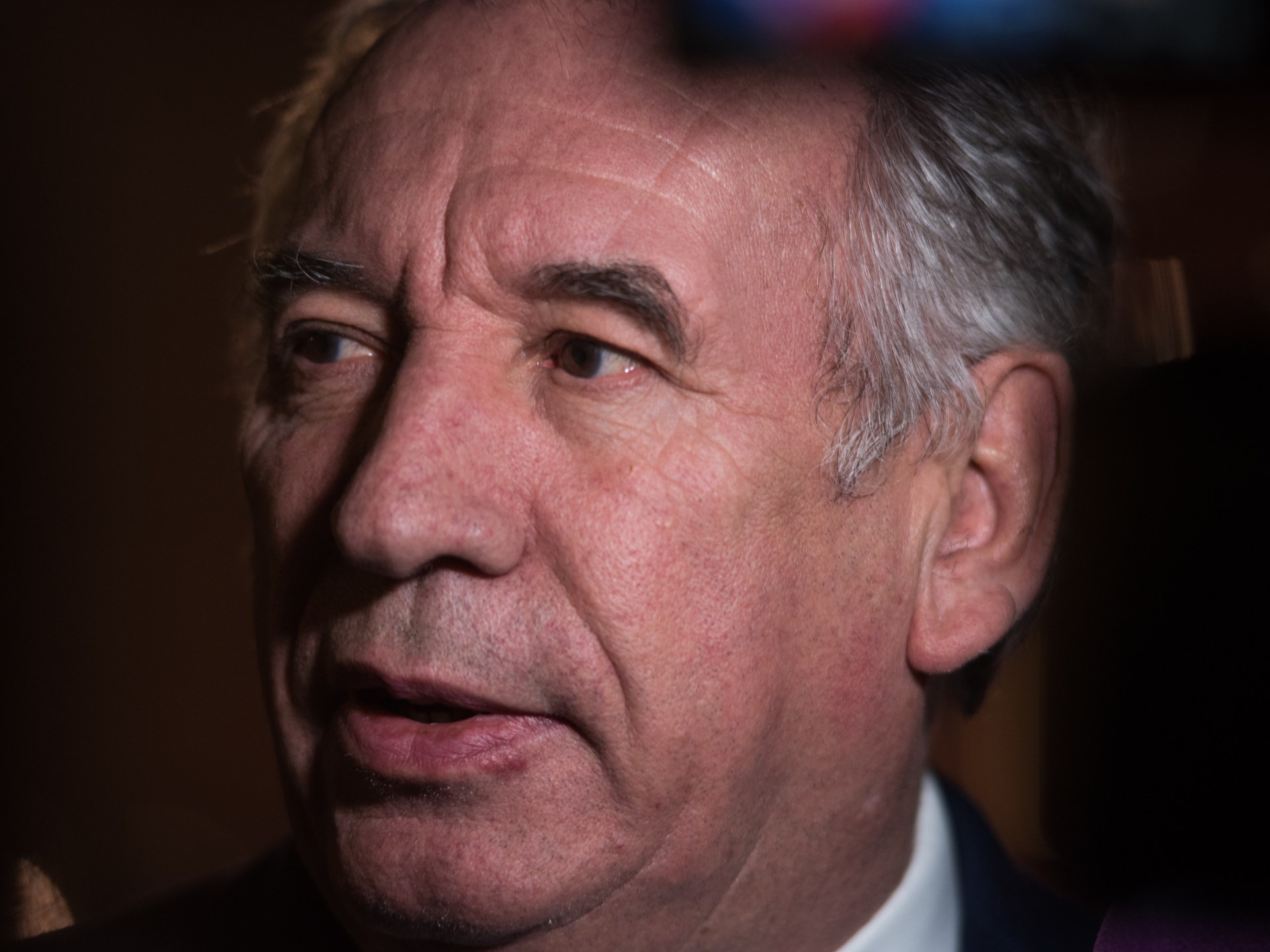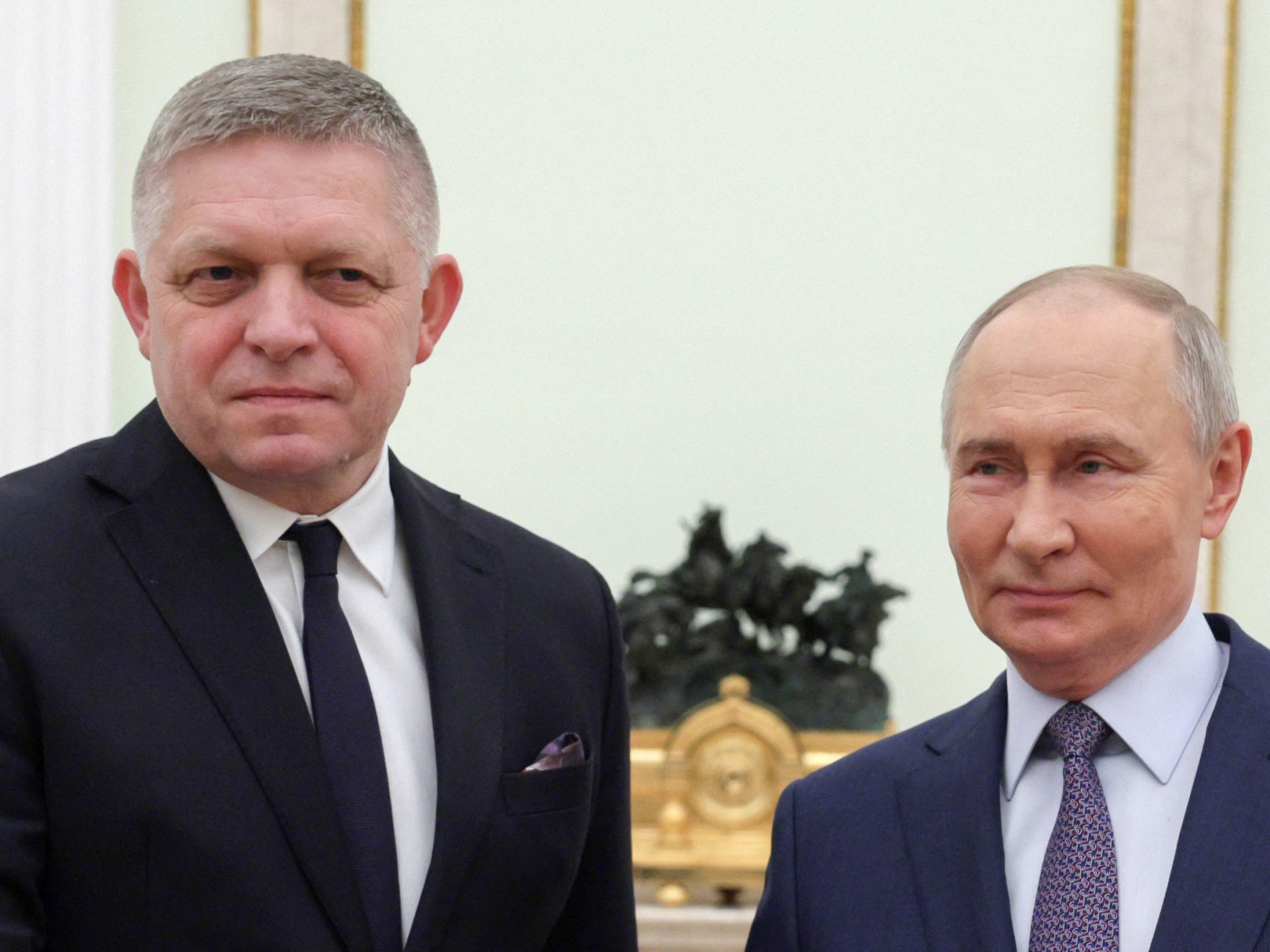As the United States presidential election approaches on November 5, polls show Democratic Vice President Kamala Harris and Republican former President Donald Trump locked in a tight, too-close-to-call race.
But while the US election is about who the American people want to see leading them, the country’s outsized influence means the contest is being watched closely in capitals around the world.
So who would various world leaders want to see in the White House?
Vladimir Putin, Russia
While the Russian leader has suggested — perhaps in jest — that he might prefer Harris as president, many signs point towards Putin actually favouring a Trump win.
“Putin would love Trump as president for various reasons,” Timothy Ash, an associate fellow in the Russia and Eurasia Programme at Chatham House, told Al Jazeera.
“First, Putin thinks Trump is soft on Russia and will roll over to give him a great deal on Ukraine – cutting military support to Ukraine and lifting sanctions on Russia,” he said.
“I think Putin looks at Trump and sees a mirror image of himself, an authoritarian, sociopath. He likely thinks he understands Trump,” Ash added.
Furthermore, Putin “hates” the system of Western liberal market democracy, and the Russian leader “thinks Trump will continue where he left off in Trump 1.0 in sowing disunity and chaos”, undermining institutions like NATO and the European Union.
However, Russian analysts say regardless of who wins, Moscow officials believe the US aversion towards Russia will remain, the Anadolu news agency reported.
Putin had previously been outspoken about his thoughts on US presidential politics and has made endorsements for candidates time and time again since 2004.
Before the 2016 election, Putin talked Trump up to reporters during an annual news conference. “He is a bright and talented person without any doubt,” he said.
In July 2016, the US intelligence community accused Putin of election interference with the aim of helping Trump defeat Democratic challenger Hillary Clinton. In 2020, a bipartisan US Senate report found that Russia had meddled in the 2016 election. US intelligence also alleged that Russia meddled in the 2020 election.
On July 9 this year, a US intelligence official – without naming Trump – indicated to reporters that Russia favoured Trump in the 2024 race.
“We have not observed a shift in Russia’s preferences for the presidential race from past elections, given the role the US is playing with regard to Ukraine and broader policy toward Russia,” the official from the Office of the Director of National Intelligence (ODNI) said.
In September, Putin made a tongue-in-cheek reference to Harris, describing her as having an “expressive and infectious laugh” which, he said, indicates “she’s doing well” and maybe would not impose sanctions on Russia.
“I don’t know if I’m insulted or he did me a favour,” Trump responded at a campaign rally on the same day as Putin made the wry remarks.
In October, veteran reporter Bob Woodward alleged in his new book that Trump had made at least seven phone calls to Putin since he left the presidency in January 2021. These allegations were rejected by Trump’s campaign and by Trump himself. “He’s a storyteller. A bad one. And he’s lost his marbles,” Trump said about Woodward to ABC news.
Later in October, during the closing of the BRICS summit, Putin said Trump “spoke about his desire to do everything to end the conflict in Ukraine. I think he is being sincere.”
Trump has been critical of the aid that the US sends to Ukraine against Russia’s war and says he will promptly end the war if elected.

Xi Jinping, China
Xi Jinping has not publicly made an endorsement.
As with Russia, both Democrats and Republicans have taken a tough stance towards China. During his presidency, Trump started a trade war with China, imposing tariffs on $250bn of Chinese imports in 2018. China hit back, placing tariffs on $110bn of US imports.
It does not seem like he will back down from that if elected, but Democrats could also rally against China’s growing influence worldwide.
When Biden became president, he kept Trump’s tariffs in place. Furthermore, on September 13 this year, the Biden administration announced increases in tariffs on certain Chinese-made products. If Harris wins, she is expected to stay consistent with Biden’s policy towards China.
Neither Trump nor Harris have gone into detail about what their course of action would be towards China if they are elected.
Despite Trump’s trade war, he has boasted of his good relationship with Xi. After Trump survived an assassination attempt on July 14, he said world leaders had reached out to him. “I got along very well with President Xi. He’s a great guy, wrote me a beautiful note the other day when he heard about what happened,” Trump told a rally.
However, behind the scenes, Chinese officials may be slightly leaning towards Harris, NBC news quoted Jia Qingguo, the former dean of the School of International Studies at Peking University, as saying.
“The irony is, Xi probably wants Harris, as does Iran,” Ash told Al Jazeera while talking about Putin.
Benjamin Netanyahu, Israel
Israel’s Prime Minister Benjamin Netanyahu has not publicly endorsed either candidate. However, it is widely believed that he leans towards a Trump win.
Netanyahu and Trump had a good relationship during the former US president’s first term. In 2019, at the Israeli-American Council, Trump said: “The Jewish state has never had a better friend in the White House than your president.”
The feelings were mutual. Netanyahu, in a 2020 statement, said that Trump was “the greatest friend that Israel has ever had in the White House”.
Relations between Trump and Netanyahu soured after Biden was elected. When Biden was sworn in, Netanyahu congratulated him. Trump said he felt betrayed by this, in an interview.
However, the Israeli PM has made attempts to rekindle the old bond. During a US visit in July this year, Netanyahu visited Trump at his Mar-a-Lago residence in Florida. Axios reported that an ally of Netanyahu even travelled to Mar-a-Lago before the actual meeting of the two leaders, to read passages from Netanyahu’s book, praising Trump.
The Israeli PM also posted a video on social media expressing shock about the assassination attempt on Trump at a rally in Pennsylvania in July, which was reposted by Trump on his social media platform, Truth Social.
At the same time, the Biden administration has shown unwavering diplomatic and military assistance to Netanyahu’s government amid Israel’s war on Gaza, where the death toll of Palestinians stands at 43,061 according to UN humanitarian agency OCHA as of October 29.
Since the start of Israel’s war on Gaza on October 7 last year – following a Hamas-led attack on villages and army outposts in southern Israel – Biden’s government has sent billions of dollars in military aid to Israel.
Last October 4, Biden told a news conference that he does not know whether Netanyahu is purposefully holding up a ceasefire deal in Gaza, despite reports and speculation that the Israeli PM might have been holding up an agreement on purpose, possibly to influence the US election result.
“No administration has helped Israel more than I have. None. None. None. And I think Bibi should remember that,” Biden said during the news conference, referring to Netanyahu by his nickname.

European and NATO leaders
A majority of European leaders prefer Harris as the US president.
“I know her well, she would certainly be a good president,” Olaf Scholz, the chancellor of Germany told reporters.
Trump has threatened to leave NATO several times. However, Politico reported that his national security advisers and defence experts say it is unlikely he will exit the alliance.
Regardless, his complaints about NATO remain. It is expected that he would want NATO allies to increase their defence spending targets.
In February, Trump stirred the pot with allies in Europe by suggesting he would tell Russia to attack NATO allies whom he considered “delinquent”.
Additionally, Trump’s victory could mean less alignment with European countries on collaboration for renewable energy initiatives.
This is because Trump has campaigned for more fossil fuel production to enable the US to reduce reliance on foreign energy imports. “We will drill, baby, drill,” he told the Republican national convention while accepting the party’s nomination in July.
On the other hand, Harris is likely to continue with Biden’s Inflation Reduction Act and clean energy transition plans, creating opportunities to collaborate with Europe. However, Harris has also been accused of making a U-turn on sustainability promises such as fracking.
During her 2019 run for the presidential primaries, Harris had promised to ban fracking, a technique of extracting oil and gas by drilling into the earth – which environmental campaigners say is particularly damaging as it consumes large amounts of water and releases greenhouse gas methane. Trump had criticised her for this promise.
During the presidential debate between Harris and Trump in Pennsylvania in September, however, Harris said: “I will not ban fracking, I have not banned fracking as vice president.”
Narendra Modi, India
While India’s Prime Minister Narendra Modi shared a close relationship with Trump during the latter’s presidency, Modi was also one of the first world leaders to congratulate Biden on his 2020 election victory.
Congratulations @JoeBiden on your spectacular victory! As the VP, your contribution to strengthening Indo-US relations was critical and invaluable. I look forward to working closely together once again to take India-US relations to greater heights. pic.twitter.com/yAOCEcs9bN
— Narendra Modi (@narendramodi) November 7, 2020
“I don’t believe that Modi has a strong preference for one candidate over another,” Chietigj Bajpaee, senior research fellow for South Asia, Asia-Pacific Programme at the UK-based think tank Chatham House, told Al Jazeera.
“There is a high degree of bipartisan consensus in Washington on deepening relations with India and viewing it as a long-term strategic partner – arguably as much consensus as there is on viewing China as a long-term strategic rival,” Bajpaee wrote in an article for Chatham House.
He wrote that the three key pillars of US engagement with India are that India is the world’s largest democracy, that the US sees India as a bulwark against China and India’s potentially growing economy.
Michael Kugelman, director of the Washington, DC-based Wilson Center think tank’s South Asia Institute told Al Jazeera that the Indian government will weigh the pros and cons for both candidates.
When it comes to Trump, “there may be a sense in New Delhi that that would be a good thing for India because there may be a perception that Trump would not make a fuss about internal matters in India, including human rights issues,” Kugelman said, adding that despite this, the government of India would be concerned about Trump’s “unpredictable” governing style.
“While Donald Trump is more familiar to Modi from his first term in office, a Kamala Harris presidency offers a degree of continuity from the current Biden administration,” Bajpaee told Al Jazeera.
Under Biden, ties between the US and India deepened in terms of defence, technology and economy. Biden made India a Major Defence Partner, despite India not being a formal military ally and its reliance on Russia for military assistance.
In May 2022, on the sidelines of the Quad summit in Tokyo, India and the US announced an Initiative for Critical and Emerging Technologies (iCET), to enhance cooperation in AI, quantum computing and other technological advances.
Before Modi’s visit to India in September this year, Trump called Modi “fantastic” but, at the same time, called India an “abuser of import tariffs”.
South Korea
South Korea is a key ally of the US in the Indo-Pacific. While the country’s president, Yoon Suk Yeol, has not explicitly endorsed a candidate, the relationship between South Korea and the US has flourished under Biden.
Commentary published in September by US think tank Brookings said that during the Trump administration, “South Koreans were dismayed by charges they were not contributing enough to their defence and to the upkeep of US forces, despite providing the bulk of front-line combat forces against North Korea.”
On the other hand, “the Biden administration has done little to address the North Korean nuclear threat. It has, however, focused on strengthening bilateral and trilateral ties between Washington, Tokyo, and Seoul,” Edward Howell, a lecturer in international relations at the University of Oxford, told Al Jazeera.
Howell said this was made evident at the Camp David Summit of 2023, as well as in presidential-level meetings between Biden and Yoon Suk Yeol.
Howell added that South Korea will want to make sure that US support for it does not wither under the next president “at a time when the East Asian region faces not just the threat of a nuclear North Korea, but an increasingly coercive and belligerent China”.
Japan
For US ally Japan, a Trump win may mean he will shift focus to domestic policy and reduce collaboration with Japan, increase tariffs, as well as expect Japan to increase military spending, analysis published by Japanese website Nippon Communications Foundation says.
However, Japanese government officials have formed relationships with officials from the last Trump administration, including Bill Hagerty, who is a former ambassador to Tokyo and is seen as a favourite for secretary of state, the analysis by Kotani Tetsuo says.
On the other hand, while a Harris administration would mean more consistent policy with the Biden administration, new relationships would have to be formed with the officials on Harris’s team.
Australia
For US ally Australia, “a Trump victory would raise many questions,” Ben Doherty, a reporter from Australia wrote for The Guardian.
Doherty added that many in Australia believe Trump is likely to withdraw from the Paris Agreement if he is re-elected, which could weaken the influence of the informal climate coalition, the Umbrella Group, which Australia is a part of.
Australia also shares a trade relationship with China and a Trump win could mean trade war with China, which could be detrimental to Australia’s economy.














Leave a Reply